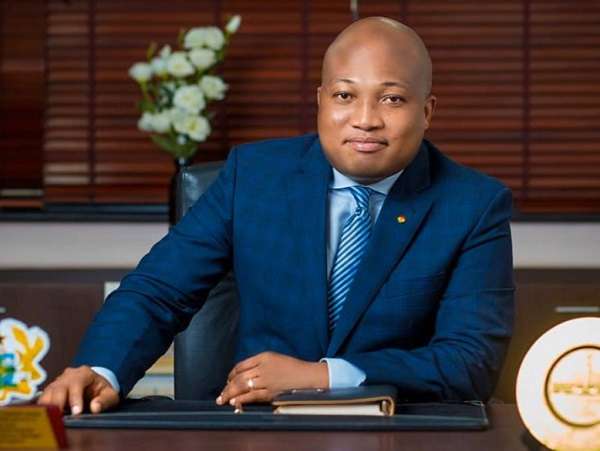The Member of Parliament for the North Tongu constituency, Hon. Samuel Okudzeto Ablakwa has made known his decision to propose a new private member’s legislation in Parliament. He stated that the bill is to prevent the unlawful expenditures made at State-Owned Enterprises without Parliamentary approval.
He argued that most State-Owned Enterprises are being mismanaged by their various leaders and as a result, incurred huge losses. He opined that the continuous use of state funds without any measures by these State-Owned Enterprises is a betrayal of Ghanaians and the government’s insensitivity towards the woes of the citizens.
“When a government asks everyone to take financial haircuts due to the effects of their economic mismanagement, we don’t expect its officials to be approving for themselves fat increments in allowances”.
Hon. Samuel Okudzeto Ablakwa
The Member of Parliament alleged that intercepted Memos from the Ghana National Petroleum Corporation (GNPC) revealed that the Board and Management of the company increased their allowances by a whopping 150% despite the country’s economic crisis and the President’s assurance to Ghanaians and the Parliament of a general pay-cut in states institutions and enterprises.
He stated that, according to the Memo, allowances for a day’s hotel rate for Board Members and Management were increased from 400 to 1000 Dollars, Euros, or Pounds depending on where they travel to.
He also claimed that Per Diem for the Board Chairman has been increased from 500 to 850 and from 500 to 700 for the Chief Executive Officer and other board members; these are also in Dollars, Euros, or Pounds as per the travel destination.
Furthermore, Hon. Okudzeto Ablakwa alleged that other Memos, which he did not disclose to the public, requested for the CEO’s salary to be increased despite the over-bloated expenditure made on allowance for travels.
He purported that an insider from the Ghana National Petroleum Corporation indicated that the CEO, Mr. Opoku Ahweneeh Danquah, who is President Akufo-Addo’s nephew, always gets what he wants; a classical case of nepotism which the President claimed to abhor while in opposition.
Moreover, the Member of Parliament indicated that the practice of Board Members and CEOs of State-Owned Enterprise determining their salaries and allowances must be regulated by the appropriate government institutions. He opined that expenditure of such nature to be made by any State-Owned Enterprise must be first and foremost approved by Parliament.
Structure of SOEs In Ghana
Generally, State-Owned Enterprises in Ghana have boards and comply with the marginal governance issues that are outlined in the legal frameworks that established them.
However, as a result of Executive (Presidential) appointments of CEOs and Board members of SOEs in Ghana, SOEs have significant weaknesses in the areas of board performance evaluation, and criteria for board appointment.
Due to the lack of regulation of the operation for SOEs, they have been reluctant to comply with public regulations and order. The Auditor General report in 2022 indicated that 30 out of 175 SOEs failed to present their accounts to be audited despite several attempts by the office of the Auditor General to have them submitted.
Despite controlling about half of the country’s resources, SOEs in Ghana have largely caused several losses to the country’s finances rather than being an instrument for economic development. The 175 SOEs, contribute just 5% to Ghana’s gross domestic product (GDP).
The underperformance of these SOEs has mainly been due to mismanagement, which led to some legacy debts being incurred over the years which in turn made it difficult for them to raise additional capital to expand their business operations.
Conclusively, the government must put proper structures in place to monitor the performances of SOEs and to ensure an increase in their profit margin and a reduction in the losses they cost the country due to mismanagement and unlawful practices.
READ ALSO: Minority Leader Highlights Failures of Government



















